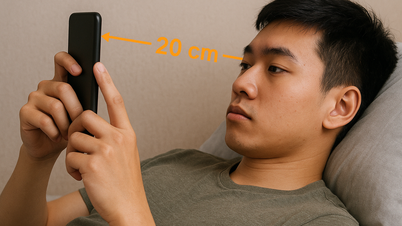Brain fog and temporary memory loss can occur before, during, or after a migraine, affecting concentration and cognition.
According to the American Migraine Foundation, migraines can cause transient global amnesia, brain fog, and transient global memory loss. Brain fog is a cognitive disorder that causes impaired memory, difficulty concentrating, forgetfulness, decreased alertness, or difficulty completing simple daily tasks.
Hemiplegic migraine can cause longer-term memory loss, but is less common. It is caused by proteins that build up in the brain and prevent nerve cells from functioning properly. People with this condition have symptoms similar to strokes: weakness on one side of the body, headaches, migraines.
Cognitive dysfunction is a common symptom of migraine attacks. Studies show that people under 50 with migraines have poorer attention and memory than normal people. According to a 2021 study by Keio University School of Medicine (Japan) on nearly 2,500 people, about 40% of people with migraines have cognitive impairment, including attention, processing speed and memory.
In 2020, Sechenov University (Russia) published a study on 188 people on the link between migraine and dementia. Of which, nearly 2/3 of people with chronic migraine had problems with memory and concentration. The risk of cognitive impairment in people with chronic migraine is 4 times higher than in people with episodic migraine. Chronic migraine is when there are at least 15 headache days per month, lasting for three months.

Migraines affect the ability to think and concentrate. Photo: Freepik
According to the American Migraine Foundation, people with this condition experience foggy or foggy brains, which can develop about two days before a headache and last a day after it subsides. They are short-lived but affect cognitive function and the brain's information processing in a variety of ways. Brain fog can signal the onset of a migraine.
Researchers are not yet sure what causes brain fog in migraine sufferers. However, the organization believes that the condition may be related to the weakening of the cerebral cortex that occurs before a migraine. It also slows down thinking, causing some people to experience auras or visual disturbances before a migraine.
The effects of a migraine on the brain are usually temporary, not causing permanent brain damage or destroying brain cells. But you may have difficulty thinking or concentrating on tasks afterward. When the cortical depression passes, the brain fog clears up, usually within a few days of the aura.
People with migraines may have changes in the brain's white matter, the area the brain uses to communicate with the rest of the nervous system. These changes appear as small dots on MRI scans and do not affect cognitive function.
Some prescription medications used to treat migraines sometimes cause brain fog and memory problems. They affect brain function, causing lack of alertness and drowsiness. If you experience brain fog while taking a medication, talk to your doctor and do not stop taking it on your own.
Mai Cat (According to Everyday Health )
| Readers ask neurological questions here for doctors to answer |
Source link



![[Photo] Prime Minister Pham Minh Chinh chairs a meeting of the Government Standing Committee to remove obstacles for projects.](https://vphoto.vietnam.vn/thumb/1200x675/vietnam/resource/IMAGE/2025/10/06/1759768638313_dsc-9023-jpg.webp)
![[Photo] Prime Minister Pham Minh Chinh chaired a meeting of the Steering Committee on the arrangement of public service units under ministries, branches and localities.](https://vphoto.vietnam.vn/thumb/1200x675/vietnam/resource/IMAGE/2025/10/06/1759767137532_dsc-8743-jpg.webp)




































































































Comment (0)